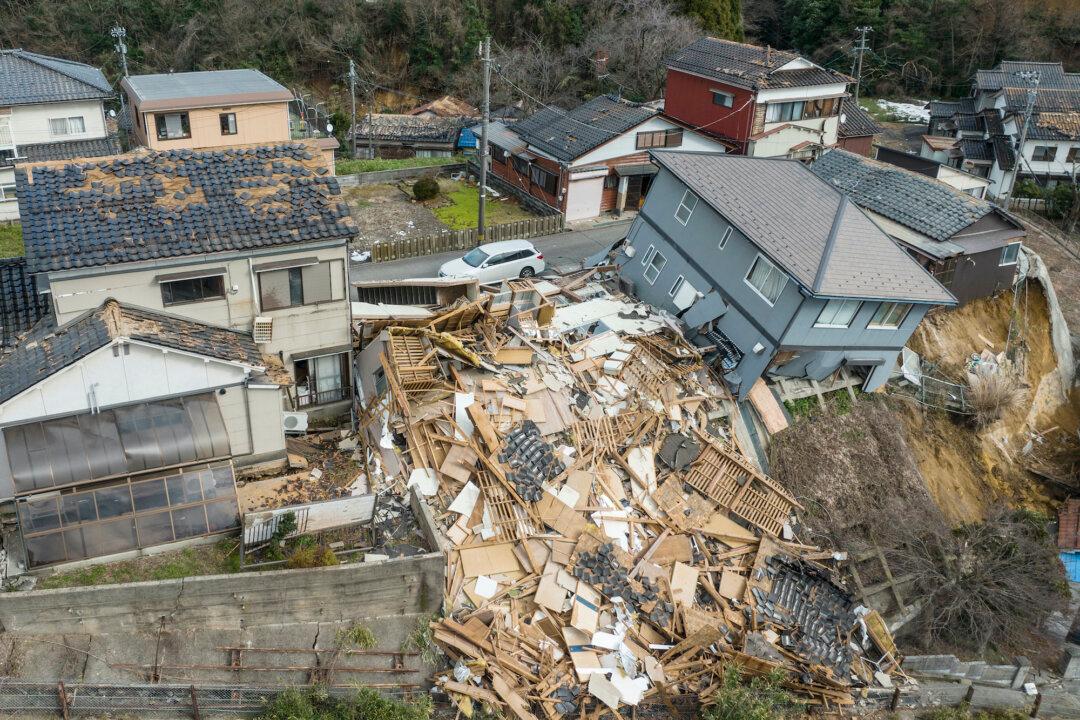Crews are racing against time to rescue people trapped under rubble following a series of devastating earthquakes that struck Japan on New Year’s Day, killing at least 55 people, knocking down structures, and leaving thousands without power.
Japan’s Meteorological Agency (JMA) reported more than a dozen quakes in the Japan Sea off the coast of Ishikawa and nearby prefectures on New Year’s Day, the largest of which had a magnitude of 7.6. The quakes collapsed buildings and triggered fires on the west coast of Japan’s main island, Honshu. JMA says more major quakes could hit the area over the next week, especially in the next two or three days.





